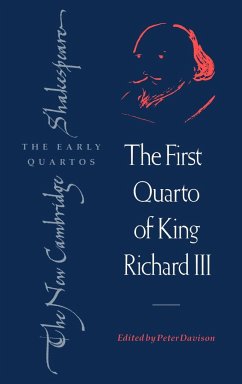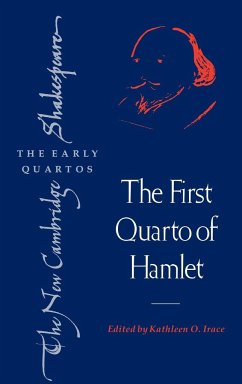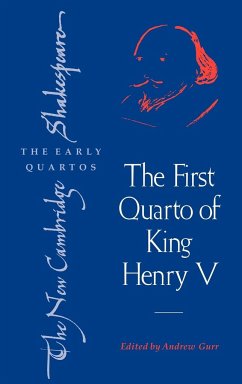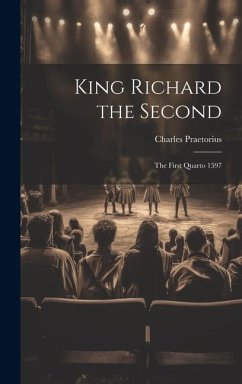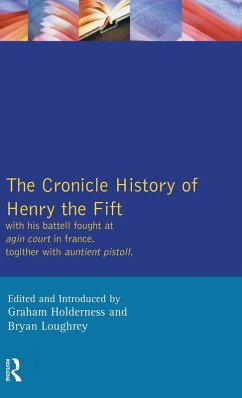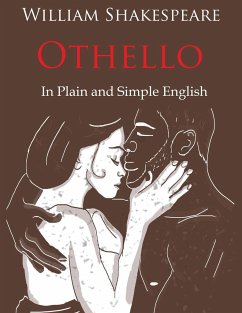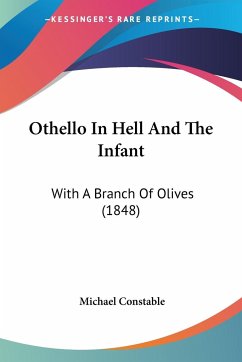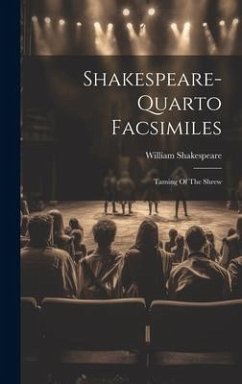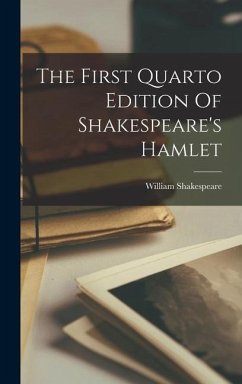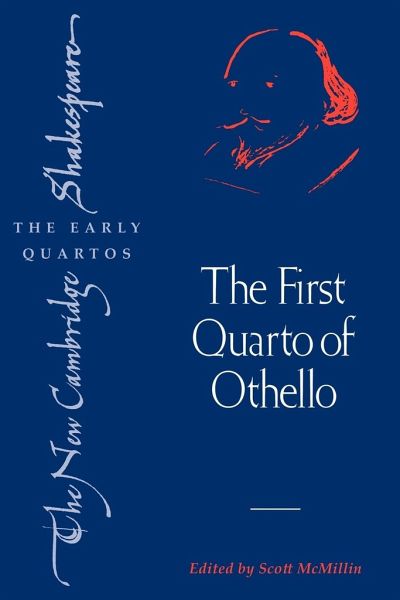
The First Quarto of Othello
Versandkostenfrei!
Versandfertig in 1-2 Wochen
51,99 €
inkl. MwSt.

PAYBACK Punkte
26 °P sammeln!
Short description/annotationThe first modernized and edited version of the 1622 Othello.Main descriptionThis is the first modernized and edited version of the 1622 Othello. By taking this earliest published version of Othello as a book in its own right, Scott McMillin accounts for the mystery of its thousands of differences from the Folio version by arguing that the Quarto was printed from a theatre script reflecting cuts and actors' interpolations made in the playhouse. McMillin explains that the playhouse script was apparently taken from dictation by a scribe listening to the actors themselv...
Short description/annotation
The first modernized and edited version of the 1622 Othello.
Main description
This is the first modernized and edited version of the 1622 Othello. By taking this earliest published version of Othello as a book in its own right, Scott McMillin accounts for the mystery of its thousands of differences from the Folio version by arguing that the Quarto was printed from a theatre script reflecting cuts and actors' interpolations made in the playhouse. McMillin explains that the playhouse script was apparently taken from dictation by a scribe listening to the actors themselves, and thus reveals how Othello was spoken in seventeenth-century performance. This edition, which consists of a detailed introduction, quarto text, select collation and textual notes, is an important book for scholars in Shakespeare and Elizabethan-Jacobean drama, with wide ramifications for other Shakespeare textual studies and for students of early theatre history.
Table of contents:
Acknowledgements; Abbreviations and conventions; Introduction: The textual problem; Q1 and foul papers; Greg sets the standard; Economy in the New Bibliography; Revision or abridgement; New evidence of foul papers(?)33;; Grounds for doubt; Walkley, Okes and the 'Cameron Group'; Punctuation; Compositorial prudence; Scribal punctuation and the Barnavelt Manuscript; Other King's-Men plays, 1619-22; Actors' interpolations; Listening; Dictation in the theatres; Mislineation; Playhouse scripts; Summary; Date of the Q1 playscript; Editorial procedure; The Play.
The first modernized and edited version of the 1622 Othello.
Main description
This is the first modernized and edited version of the 1622 Othello. By taking this earliest published version of Othello as a book in its own right, Scott McMillin accounts for the mystery of its thousands of differences from the Folio version by arguing that the Quarto was printed from a theatre script reflecting cuts and actors' interpolations made in the playhouse. McMillin explains that the playhouse script was apparently taken from dictation by a scribe listening to the actors themselves, and thus reveals how Othello was spoken in seventeenth-century performance. This edition, which consists of a detailed introduction, quarto text, select collation and textual notes, is an important book for scholars in Shakespeare and Elizabethan-Jacobean drama, with wide ramifications for other Shakespeare textual studies and for students of early theatre history.
Table of contents:
Acknowledgements; Abbreviations and conventions; Introduction: The textual problem; Q1 and foul papers; Greg sets the standard; Economy in the New Bibliography; Revision or abridgement; New evidence of foul papers(?)33;; Grounds for doubt; Walkley, Okes and the 'Cameron Group'; Punctuation; Compositorial prudence; Scribal punctuation and the Barnavelt Manuscript; Other King's-Men plays, 1619-22; Actors' interpolations; Listening; Dictation in the theatres; Mislineation; Playhouse scripts; Summary; Date of the Q1 playscript; Editorial procedure; The Play.





